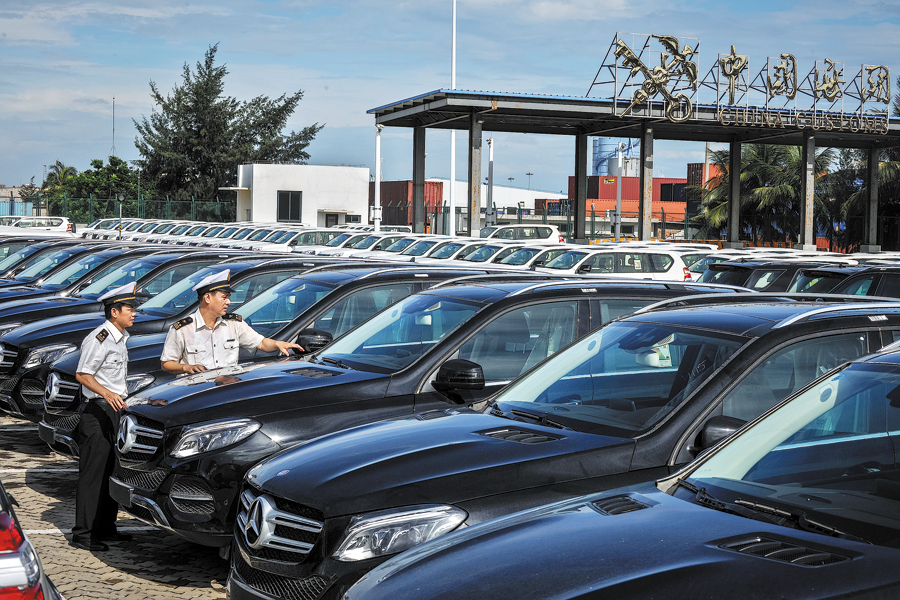Reduced tariffs to spur more imports in domestic car market

Overseas brands could become more competitive in world's largest auto market
China's plans to reduce tariffs on imported vehicles could actually benefit Chinese customers and carmakers in the long run, according to industry experts.
If tariffs are cut, more imported vehicles will enter the Chinese market at a lower price range and possibly drag down the prices of domestically made vehicles.
A tariff-cutting plan for imported vehicles will be proposed promptly, in expectation that it would be approved and implemented as soon as possible, according to the Vice-Minister of Finance Cheng Lihua.
She made the remark on April 11, the day after President Xi Jinping said China will significantly lower import tariff rates for vehicles at the opening ceremony of the Boao Forum for Asia Annual Conference 2018.
The country currently imposes a 25 percent tariff on all imported vehicles.
Last year, Chinese customers purchased more than 1.2 million imported cars, accounting for about 4 percent to the country's entire automobile market.
The price cuts on imported cars are expected to most benefit overseas brands which currently struggle in the Chinese market, an unnamed expert told China Daily.
"Companies solely trading imported cars that have a small market share will have the impulse to lower the price first, in an aim for a bigger volume," said the expert.
"As soon as one brand starts the price cut, the rest of the car importers will follow collectively to defend their positions."
Most models imported into the Chinese market are mainly positioned in the premium segment and are targeted at meeting the demands of a more niche group of consumers.
BMW, Mercedes-Benz, Toyota, Ford, Porsche, Jaguar Land Rover and Volkswagen are among the imported brands that achieved major sales in the Chinese market last year.
By targeting a more exclusive market, the price of imported vehicles are determined by many factors with the tariff rate only a minor factor, according to the expert.
Several imported models are sold in the Chinese market at a reduced price in order to counteract the tariffs.
As a result, companies such as Tesla and BMW actually lose money on certain models sold in China.
Sources from super luxury car makers said they are still not sure whether the lower tariff will help them much since they also face a 10 percent luxury purchase tax imposed on vehicles priced above 1.5 million yuan ($238,100).
While awaiting the specific tariff plans, Laurent Diot, deputy general manager of Dongfeng Renault Automobile foresees a climb in import volume for Renault models.
"A good, fair increase in the volume of imported Renault is possible, while Dongfeng Renault's main strategy is to localize our products in China and specifically for Chinese customers," he said.
Dongfeng Renualt sold 2,599 imported Renault Capture sport utility vehicles and Espace multi-purpose vehicles in the Chinese market last year.
Ford has said that it is also encouraged by the tariff cut comments, and looks forward to learning more about it in the near future.
Seven international automakers including Toyota and Renault who have imported car business in China said that they will pay great attention to the coming detail plan. Three industry insiders said they are positive about the future tariff-cutting plan.

